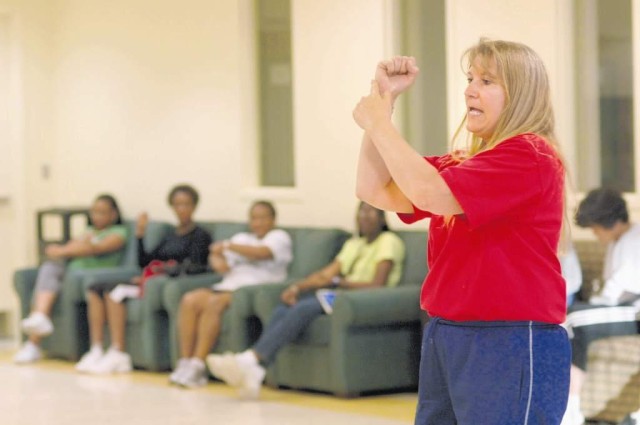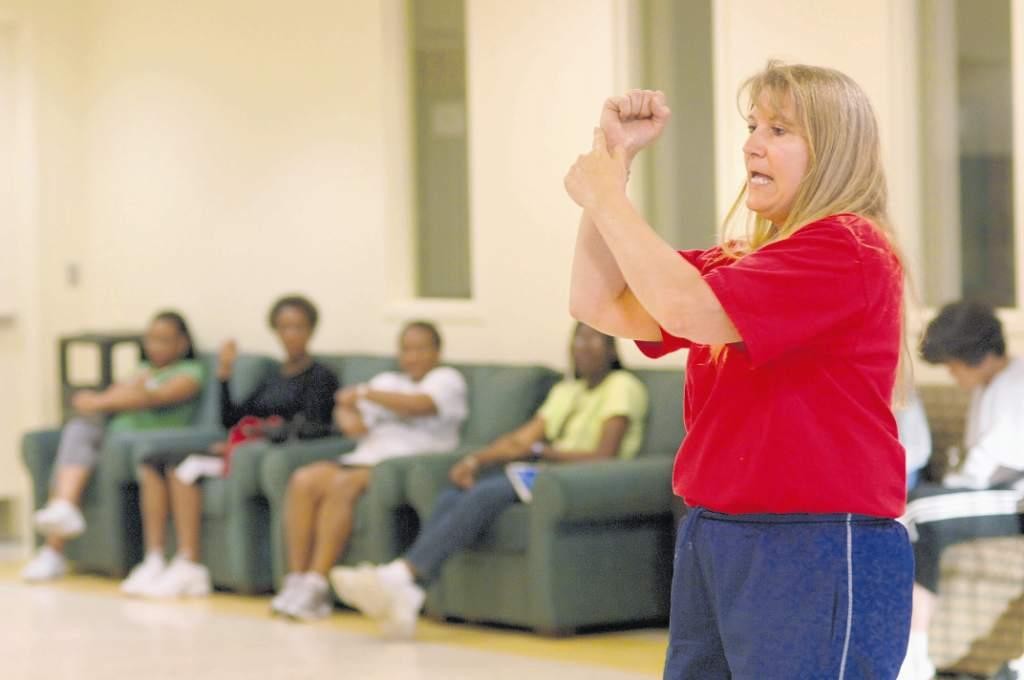FORT BELVOIR, Va. - The image of a self-defense class might conjure thoughts of aggressive physical action: students kicking or punching their way out of an attacker's grasp, for example.
But Dee Blankenship, Rape Aggression Defense instructor with the Sexual Assault Victims Advocacy Service of Prince William County, spent much of a class April 14 lecturing with what she called the most important weapon against an attacker - the voice.
"By using your voice during an attack, you're doing two things," Blankenship explained to a room of nearly 30 women at Army Community Service. "First, yelling keeps you breathing. Second, it tells people around you that you need help."
Blankenship, a 10-year instructor, led the RAD class in coordination with Sexual Assault Awareness Month to inform members of Fort Belvoir's female community on how to help prevent assaults and how to react if one occurs.
Much of the class' first half was a discussion about safety statistics and risk reduction, while the second half focused on RAD's physical techniques to help avoid assault.
"We're not teaching you how to kill anybody here," Blankenship teased with a smile. "We just want you to get away. Your goal is to escape and survive."
Blankenship offered the women several tips, one of which was to be aware of how they present themselves on the street. "Criminals are looking for the woman who doesn't look like she'll fight back," she said. "Don't look like a victim. Carry yourself in a way that shows you know what's going on."
Perhaps the most important thing is for a woman to be aware of her surroundings to help avoid potentially dangerous situations in the first place.
Every woman, Blankenship said, has a 'toolbox' with her own set of personal tools to use against an attacker. Those tools must be kept secret from others to ensure they aren't turned on a potential victim. "We just tell you that you have tools that are available to you, and it's up to you to decide which is best," she said.
The class engaged with answers to Blankenship's questions and presented some of their own.
"Remember, perpetrators make a career at this," Blankenship said. "They are the best of the best at their job. They know all the tricks to get what they want.
"If you've survived, you've done the right thing."


Social Sharing